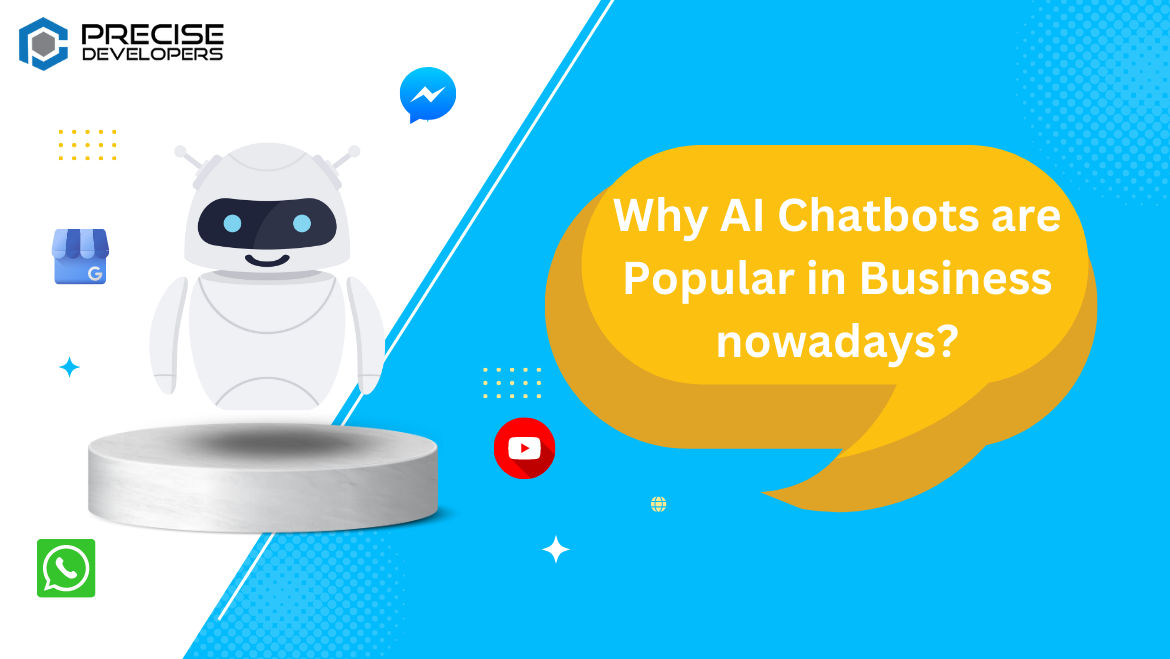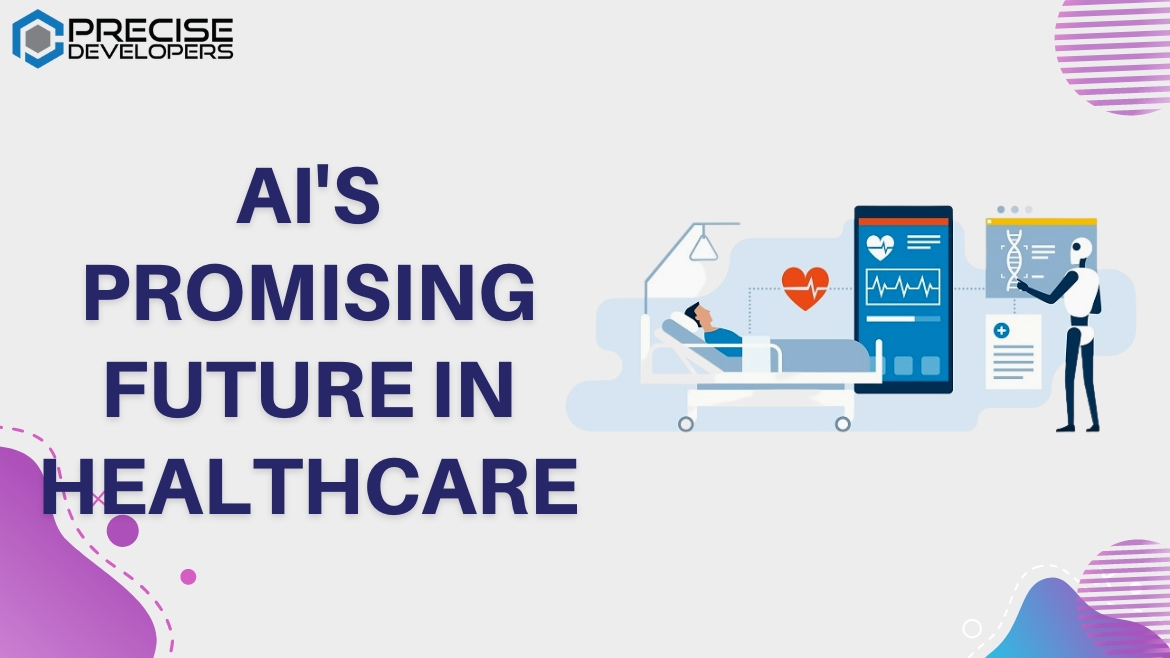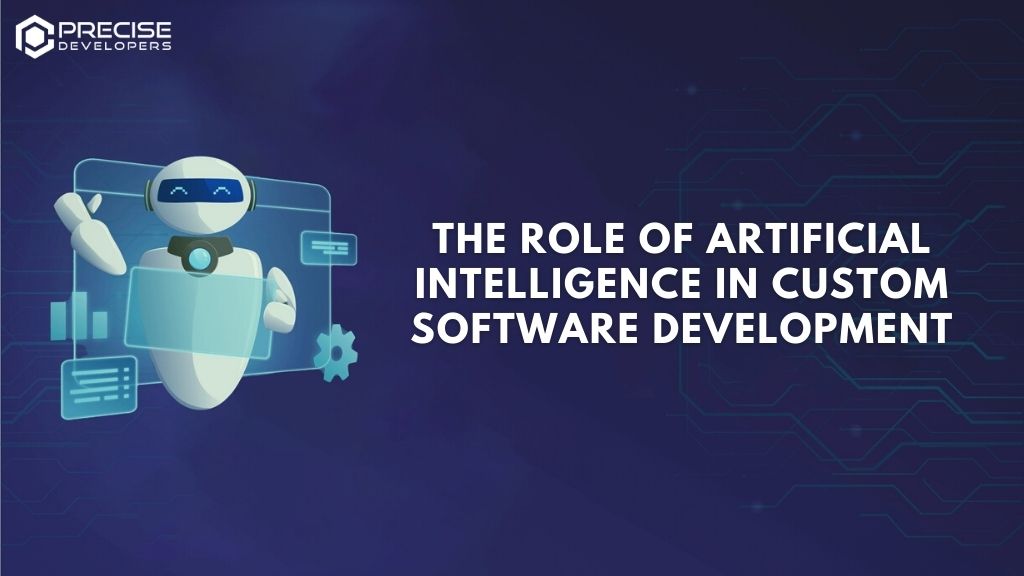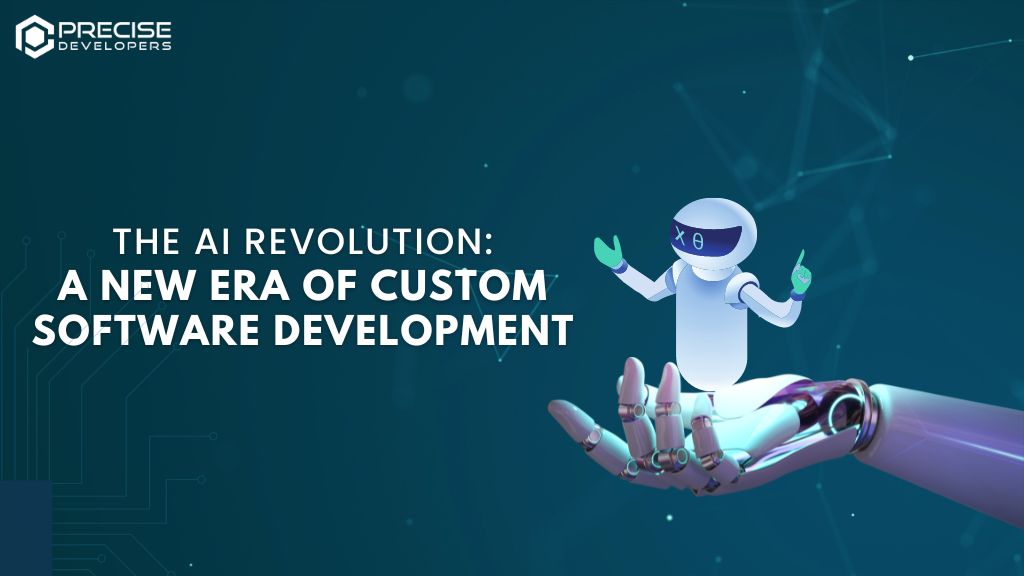In today’s fast-paced world, businesses are always seeking new ways to enhance customer engagement and improve customer service. One of the latest technologies that have gained immense popularity in the business world is AI chatbots software. Chatbots have become an integral part of businesses of all sizes, thanks to their ability to handle customer queries and provide assistance in real time. In this blog post, we will explore why AI chatbots are so popular in business nowadays and how to build and maintain them effectively. AI chatbot software and its importance in the modern world AI chatbot software is a computer program that uses artificial intelligence to simulate human-like conversations with users. It can understand natural language and provide appropriate responses. This technology has gained immense popularity in recent years, thanks to its ability to provide businesses with an efficient and cost-effective way to communicate with their customers. Chatbots can be used for a variety of purposes, such as customer service, sales, marketing, and more. They can handle repetitive tasks, answer frequently asked questions, provide personalized recommendations, and even process transactions. Definition and types of chatbots Chatbots can be classified into two types: rule-based and AI-based. Rule-based chatbots are programmed to follow a set of predefined rules to provide responses to users. They are limited in their ability to handle complex queries and require constant updates to keep up with new user queries. AI-based chatbots, on the other hand, use machine learning and natural language processing (NLP) to understand user queries and provide appropriate responses. They can handle more complex queries and can learn from user interactions to improve their responses. Chatbot architecture and components The architecture of a chatbot consists of four main components: Examples of chatbot use cases in different industries Chatbots are used in various industries, such as healthcare, finance, retail, and more. Some common use cases include: Developing an AI Chatbots Software Developing an AI chatbot software involves two main steps: Understanding the user requirements: The first step in developing a chatbot is to understand the user requirements. This involves identifying the target audience, understanding their needs, and defining the scope of the chatbot’s functionality. Designing the chatbot architecture: The second step is to design the chatbot architecture. This involves selecting the appropriate technology stack, designing the conversational flow, and integrating with third-party systems. Best Practices for Building AI Chatbots Software Building an effective chatbot requires following some best practices: Choosing the right platform and tools: Selecting the right platform and tools is crucial for building an effective chatbot. It is important to choose a platform that provides robust NLP and machine learning capabilities. Designing conversational flow: It is critical to ensure that the chatbot provides a seamless experience to users. It is important to design the flow in a way that is natural and easy to understand for users. Providing clear responses: The responses provided by the chatbot should be clear and concise. It is important to avoid technical jargon and use simple language that is easily understood by users. Maintaining user privacy and security: It is critical for building trust with users. Chatbots should be designed to handle user data securely and comply with relevant data privacy regulations. AI Chatbots Software Maintenance and Improvement Maintaining and improving the chatbot software is an ongoing process that involves the following steps: Monitoring performance metrics: It is important to ensure that the chatbot is meeting its performance goals. Metrics such as response time, accuracy, and user satisfaction should be regularly tracked and analyzed. User feedback and analysis: For understanding user needs and improving the chatbot’s performance. Feedback can be collected through surveys, chat transcripts, and other feedback mechanisms. Continuous learning and improvement: Chatbots should be designed to continuously learn and improve over time. This involves analyzing user interactions, identifying areas of improvement, and making updates to the chatbot’s architecture and functionality. Challenges and Solutions for Building AI Chatbot Software Building effective chatbots comes with its own set of challenges. Some common challenges include: Language and dialect differences: Chatbots should be designed to handle language and dialect differences to ensure that they can communicate effectively with users from different regions. Integration with third-party systems: It can be challenging, especially when dealing with legacy systems. It is important to choose integration solutions that are flexible and scalable. Handling complex user queries: Chatbots should be designed to handle complex user queries and escalate them to a human agent if necessary. This requires robust NLP and machine learning capabilities. Case Studies of Successful AI Chatbot Software There are many successful chatbot implementations across various industries. Some examples include: Conclusion AI chatbot software has become an integral part of modern businesses, thanks to their ability to provide efficient and cost-effective customer service. Building and maintaining effective chatbots requires following best practices and continuously learning and improving. Despite the challenges, chatbots offer businesses an opportunity to provide personalized and seamless customer experiences. You may also like: If you like this post let us know what would you want us to post next in the comment section also help this post reach more and more people via our social media accounts on Instagram, Facebook, Twitter, and LinkedIn.
Artificial Intelligence (AI) is transforming healthcare as we know it. It has the potential to improve outcomes, reduce costs, and increase access to care. The use of AI in healthcare is rapidly growing and is expected to continue to do so in the future. In this blog, we will explore the promising future of AI in healthcare and how it will impact the industry. What is the future of AI in healthcare? The future of AI in healthcare is bright. According to a report by Accenture, AI in healthcare is expected to grow at a compound annual rate of 41% from 2018 to 2025, reaching a market size of $6.6 billion. The use of AI in healthcare will become increasingly important in the coming years as the demand for healthcare services increases and the need to reduce costs intensifies. How will AI improve healthcare? AI holds the capacity to enhance healthcare in numerous aspects, presenting several significant advantages: How will AI change the future of the country in healthcare? The use of AI in healthcare has the potential to improve healthcare outcomes and reduce costs, which can have a positive impact on the country as a whole. Improved healthcare outcomes can lead to a healthier population, which can lead to increased productivity and economic growth. Reduced healthcare costs can also free up resources that can be used for other important priorities, such as education and infrastructure. What is the positive impact of AI in healthcare? The positive impact of AI in healthcare is vast. Listed below are some notable advantages: What are 3 ways AI will change healthcare by 2030? What is the role of AI in healthcare? The role of AI in healthcare is to assist healthcare professionals in providing better care to patients. AI can analyze vast amounts of medical data, identify patterns, and create personalized treatment plans, which can improve outcomes and reduce costs. AI can also automate many tasks, which can free up healthcare professionals to focus on patient care. Ultimately, the role of AI in healthcare is to improve the quality of care that patients receive. To sum up, AI has a bright future in healthcare. AI has the potential to improve outcomes, reduce costs, and increase access to care. The use of AI in healthcare will become increasingly important in the coming years as the demand for healthcare services continues to grow. AI has the ability to revolutionize the healthcare industry by improving efficiency, accuracy, and patient outcomes. As technology continues to develop, we can expect to see even more innovative applications of AI in healthcare. However, it is important to note that AI should not replace healthcare professionals, but rather assist them in providing better care to patients. It is crucial to continue to invest in the development and implementation of AI in healthcare to improve the overall quality of care for patients. With the right resources and guidance, AI has the potential to transform the healthcare industry for the better. You may also like to see: Stay Safe in the Digital World: How DevOps Can Help If you found this post informative, we encourage you to share it with your colleagues. We value your feedback and would love to hear your thoughts on our blog and social media posts across platforms such as Instagram, Facebook, LinkedIn, and Twitter.
Artificial Intelligence (AI) is a field of computer science that aims to create intelligent machines that can perform tasks that would typically require human intelligence, such as perception, learning, reasoning, and decision-making. In recent years, AI has become an integral part of software development, and its applications are only expected to grow in the future. In this blog, we will explore the role of AI in custom software development and answer some common questions related to this topic. What is artificial intelligence in software? Artificial intelligence in software refers to the use of AI technologies and techniques to create intelligent software systems that can perform complex tasks without human intervention. AI in software can be used for a variety of purposes, such as natural language processing, computer vision, data analysis, and machine learning. How artificial intelligence is used in software development? AI is used in software development to automate repetitive and time-consuming tasks, enhance software performance, and improve user experience. Some of the ways AI is used in software development include: Do software developers use artificial intelligence? Yes, software developers use AI technologies and techniques to enhance their productivity, automate tasks, and improve software performance. AI is becoming an essential part of software development, and developers who have knowledge of AI technologies are in high demand in the job market. What are the 4 types of artificial intelligence? The four types of artificial intelligence are: How AI is making software development easier? AI is making software development easier by automating repetitive and time-consuming tasks, enhancing software performance, and improving user experience. With AI, developers can: In conclusion, AI is becoming an essential part of custom software development, and its applications are expected to grow in the future. With the help of AI, developers can automate tasks, enhance software performance, and improve user experience, which can lead to better software products and increased productivity. You may also like to see: The AI Revolution: A New Era of Custom Software Development If you found this post informative, we encourage you to share it with your colleagues. We value your feedback and would love to hear your thoughts on our blog and social media posts across platforms such as Instagram, Facebook, LinkedIn, and Twitter.
Artificial Intelligence (AI) is transforming the way we live and work, and it is driving a new era of custom software development. In this blog post, we will explore the AI Revolution, how it is changing software development, when it started, who developed the concept of AI in the computer era, and how AI is revolutionizing the modern world. We will also answer the question of whether AI is the new industrial revolution. What is the Revolution of AI Technology? AI technology is the ability of machines to learn and perform tasks that normally require human intelligence. It is a broad field that includes machine learning, natural language processing, robotics, and more. AI technology is revolutionizing industries such as healthcare, finance, manufacturing, transportation, and many others. How AI will Change Software Development? AI technology is changing software development in several ways. For example, it can automate software testing, identify and fix bugs, and improve the accuracy of code. AI can also help developers build more intelligent applications, such as chatbots and voice assistants, that can understand natural language and provide personalized responses. AI can also assist in creating more efficient and effective software development processes, by reducing the time and cost required for software development. When did the AI Revolution Start? The idea of AI has been around since the 1950s, but the AI revolution started in the early 21st century when computing power and data storage became more affordable. The increasing amount of data available also made it possible to train machine learning algorithms to perform tasks with greater accuracy and speed. Who Developed the Concept of AI in the Computer Era? The concept of AI was developed by a group of computer scientists and mathematicians in the 1950s, including John McCarthy, Marvin Minsky, and Claude Shannon. They were interested in creating machines that could think and learn like humans. Their work laid the foundation for modern AI research and development. How AI is Revolutionizing the Modern World? AI technology is revolutionizing the modern world in many ways. For example, it is improving healthcare outcomes by helping doctors diagnose and treat diseases more accurately and quickly. It is also transforming manufacturing by enabling robots to perform tasks more efficiently and safely. AI is also making transportation safer by improving autonomous vehicle technology, and it is enhancing the customer experience by enabling personalized recommendations and services. Is AI the New Industrial Revolution? AI has been compared to the industrial revolution in terms of its transformative impact on society. Just as the industrial revolution ushered in a new era of manufacturing and productivity, AI is changing the way we live and work. However, AI is unique in that it has the potential to automate tasks that previously required human intelligence. This means that it has the potential to impact a wider range of industries and job functions. In conclusion, AI technology is transforming the way we live and work, and it is driving a new era of custom software development. AI is changing software development processes and enabling developers to build more intelligent applications. The AI revolution started in the early 21st century, and it is the result of advances in computing power and data storage. The concept of AI was developed by a group of computer scientists and mathematicians in the 1950s, and their work laid the foundation for modern AI research and development. AI is revolutionizing the modern world by improving healthcare outcomes, transforming manufacturing, making transportation safer, and enhancing the customer experience. Finally, AI has the potential to be as transformative as the industrial revolution and will continue to shape our society in the years to come. You may also like to see : If you found this post informative, consider sharing it with your colleagues. We’d love to hear your thoughts on our blogs and social media posts across various platforms including Instagram, Facebook, LinkedIn, and Twitter.




